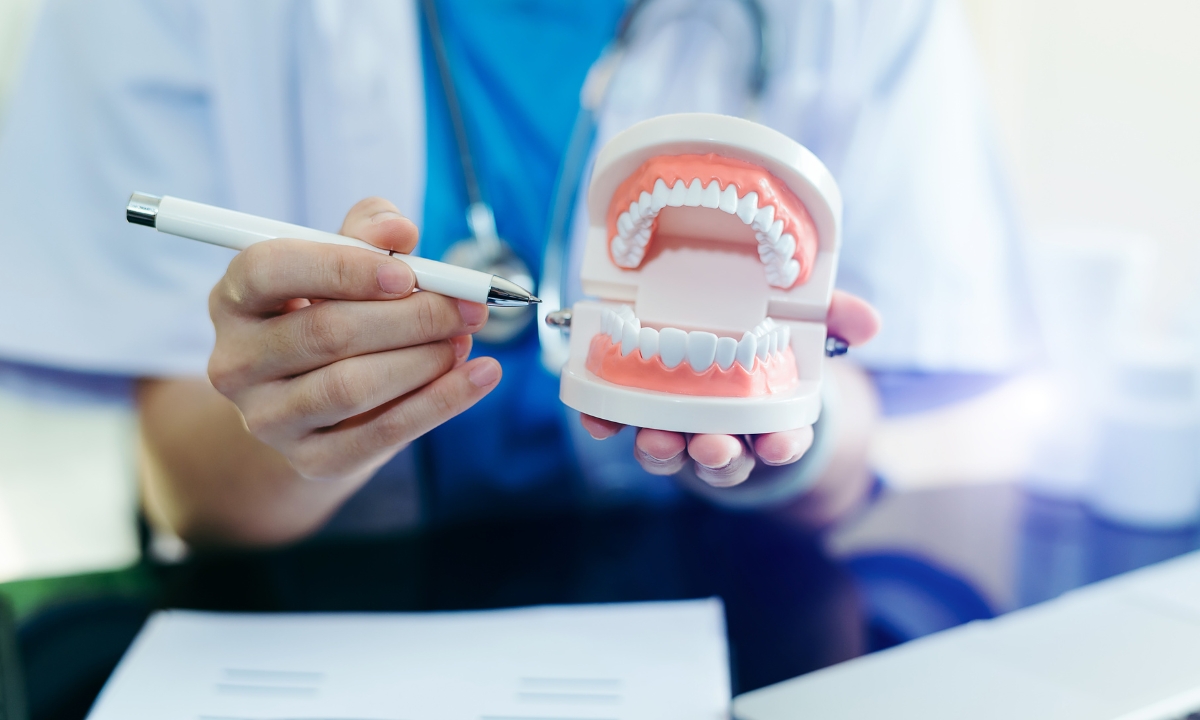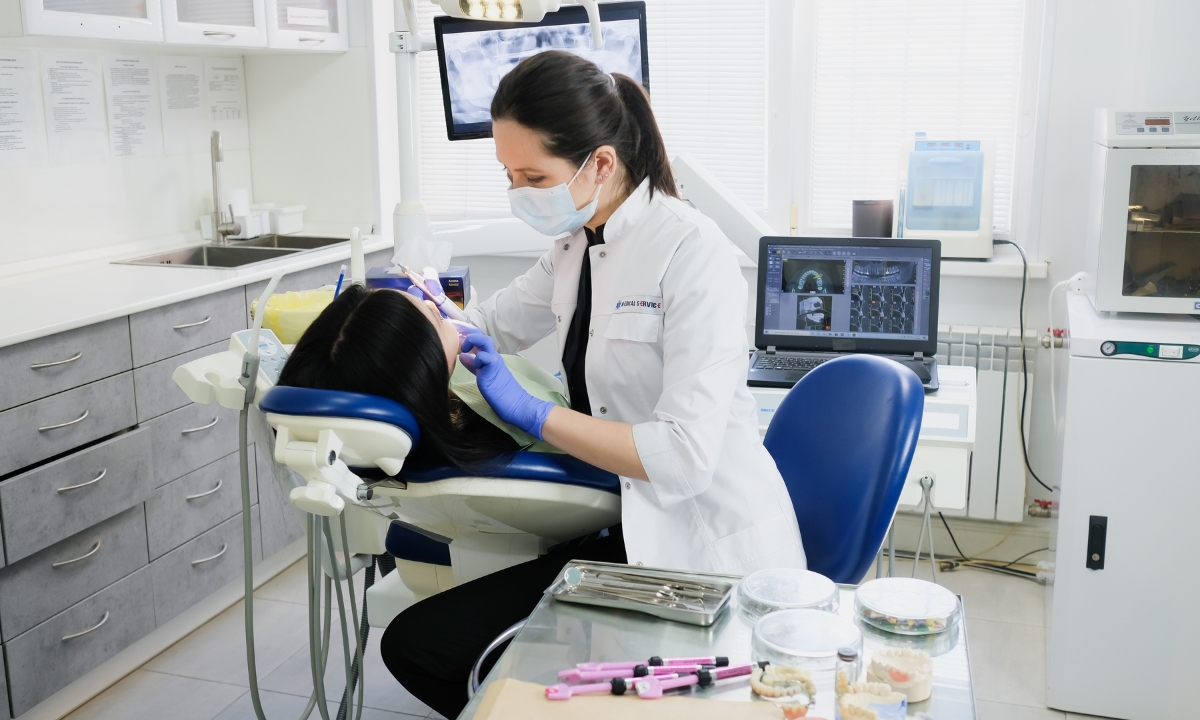What Is Principal Dental Insurance?

[This article was first published in September 2021 and has been updated and revised]
Dental insurance. Not the most exciting topic for most people, until you need it.
The fact is, many people regard dental insurance coverage as something “optional,” and while they feel they have to have health coverage, their dental work is not that important or pressing. And if you’re relatively young, healthy, and have no history of dental problems, dental insurance may indeed be a minor consideration for you.
However, the rest of us need some form of coverage, which is why dental insurance matters.
Considering Dental Coverage With Principal Dental Insurance
Principal dental insurance coverage is available through employer-provided plans. While Principal offers a wide variety of dental insurance plans, the type of plan an employer can offer to employees depends on the employer’s contract.
And Principal has one of the largest dental provider networks in the country, which is an excellent benefit for employees. Among other things, this means that if an employer changes over to Principal from a previous dental insurance carrier, it’s quite likely that few employees will need to change their dentists as a result.
According to a resource page from Principal,
“From comprehensive dental insurance to lower-cost options, you have the flexibility to personalize your dental insurance for you and your employees. And with multiple price points, it’s easy to create a design to fit a wide range of budgets.”
Principal dental insurance offers:
Deductibles waived when satisfied with prior carrierRefreshed annual maximum when a group becomes effectiveMobile app for easy access to benefits, providers, and ID cards
One of California’s most popular types of dental coverage plans is the Dental Preferred Provider Organization, or DPPO, plans, commonly referred to simply as “PPOs.” One of the reasons for their popularity is that they are among the most widely accepted plans.
With a PPO, members will save money by staying with in-network dentists, and they can go out of the network, unlike with other plans. In addition, referrals are typically not required to see a specialist such as an endodontist, for example.
In California, the many dental insurance PPO plans require waiting periods and annual benefit maximums to provide a lower monthly cost. These are typically waiting periods of three to six months for basic services such as cleanings and fillings, and often a twelve-month wait for major services such as crowns and implants.
However, unlike many firms, Principal does not require waiting periods for most procedures and offers high yearly maximums, which can be quite important depending on how much dental work is required in a year. The online experience and interface are simple to navigate, intuitive, and user-friendly.

Beyond A Nice Smile: Why Dental Health And Dental Insurance Matter
We all like to think that our dazzling smile can light up a room, but oral health goes far beyond aesthetics. A healthy mouth is crucial for overall well-being, impacting everything from digestion to self-confidence. Unfortunately, neglecting dental care can have serious consequences.
The Link Between Oral Health And Overall Health
The mouth serves as the entryway to the rest of your body. Bacteria that thrive in plaque and tartar buildup can enter the bloodstream through inflamed gums, potentially increasing the risk of various health problems. Studies have linked poor oral health to:
Heart Disease: Research suggests gum disease may contribute to inflammation throughout the body, potentially increasing the risk of heart attack and stroke.Diabetes: Gum disease can make it harder to control blood sugar levels, and uncontrolled diabetes can worsen gum disease. It becomes a two-way street.Respiratory Illness: Bacteria in the mouth can travel to the lungs, increasing the risk of pneumonia and other respiratory problems.Pregnancy Complications: Severe gum disease has been linked to premature birth and low birth weight.
According to the Mayo Clinic,
“Oral germs and oral swelling and irritation, called inflammation, are linked to a severe form of gum disease, called periodontitis. Studies suggest that these germs and inflammation might play a role in some diseases. And certain diseases, such as diabetes and HIV/AIDS, can lower the body’s ability to fight infection. That can make oral health problems worse.”
The Importance Of Preventative Care
Regular dental checkups and cleanings aren’t just about sparkling teeth. They’re an essential part of preventive healthcare. During these visits, dentists can:
Identify and address cavities and other dental problems early on when they’re easier and less expensive to treat.Detect signs of gum disease in its early stages, allowing for prompt intervention to prevent progression.Screen for oral cancer, a potentially life-threatening condition.

The Financial Benefits Of Dental Insurance
Dental care can be costly, especially if you require major procedures like crowns or root canals. Dental insurance helps manage these costs by:
Covering a portion of preventive care, including cleanings, exams, and X-rays.Offering discounts on restorative procedures like fillings and crowns.Spreading out the cost of treatment, making it more affordable.
Making Dental Care A Priority
Here are some steps you can take to prioritize your dental health:
Brush twice a day and floss daily: This removes plaque and food particles that contribute to cavities and gum disease.Schedule regular dental checkups and cleanings: Typically recommended every six months, these visits help maintain good oral health.Consider dental insurance: Dental insurance can help make preventive care and necessary treatments more affordable.Maintain a healthy diet: Limiting sugary drinks and processed foods can help reduce the risk of cavities.Don’t smoke: Smoking is a major risk factor for gum disease and oral cancer.
Investing in your dental health is an investment in your overall well-being. By prioritizing preventive care and considering dental insurance, you can ensure a healthy smile that goes beyond aesthetics, contributing to a healthier you. Remember, a dazzling smile is a great bonus, but the real reward is a lifetime of good oral health.

After The Tooth Fairy: Paying For Dental Treatment
Most of us are aware that medical care without insurance can be costly. Unfortunately, dental care can be expensive, as well. For example, according to one dental practice,
“Dental crowns are used to repair teeth that have been badly damaged by decay or injury. As a dental restoration, crowns are pretty much the only things that save damaged teeth from extraction. They are also used to correct cosmetic imperfections.”
They are also one of the most common dental procedures performed aside from cleanings and fillings. And the national average cost for a regular dental crown is between $1,100 and $1,500. However, the cost can vary depending on the type of crown chosen. Fees will also vary depending on any treatment you need before the final crown is cemented. $1,500 is quite a bit of out-of-pocket cash for most people.
And this doesn’t include annual check-ups, cleanings, and the occasional filling or minor repair. Even an average annual cost of about $2,400 per year for your total dental care costs adds up to $200 a month.
On the other hand, dental insurance helps pay for all or a significant portion of dental care costs. And this can account for everything from routine cleanings to root canals. This becomes increasingly important as you have children and get older yourself.
Several dental insurance providers are available, and many of them are top-notch, highly rated, or affordable. But not too many are all three.
For employers who want to offer dental insurance options to their employees or workers who have choices for dental coverage, Principal dental insurance is considered one of the best.
More Than Smiles: The Benefits Of Dental Coverage For An SMB
In today’s competitive job market, attracting and retaining top talent is crucial for small businesses. While competitive salaries are important, a comprehensive benefits package can be a major differentiator.
And dental insurance, which is often overlooked, can be a surprisingly compelling perk for employees and a smart move for employers. Here’s why offering dental coverage makes good business sense:
Healthier Workforce, Happier Employees: Dental problems can cause pain, discomfort, and even lost workdays. Offering dental insurance encourages employees to prioritize preventive care, leading to better overall health and potentially reducing absenteeism. Healthy employees are happier employees, fostering a more positive work environment.Enhanced Productivity: Toothaches and other oral issues can be distracting and lead to decreased productivity. By ensuring employees have access to affordable dental care, you’re helping them stay healthy and focused, ultimately benefiting your bottom line.Improved Employee Morale: Dental benefits demonstrate your commitment to employee well-being. This can boost morale, fostering a sense of loyalty and reducing employee turnover. Happy and loyal employees are more likely to go the extra mile for your company.Attracting Top Talent: In a tight job market, dental insurance can set your company apart. It shows you value your employees’ health and well-being, making your company a more attractive place to work. This can give you an edge in attracting and retaining the best candidates.Cost-Effective Benefit: Dental plans are typically much more affordable compared to other health benefits. The relatively low cost makes it a budget-friendly way to offer a valuable benefit that employees appreciate. Studies have shown that offering dental insurance can actually lead to increased employee retention, ultimately saving you money in the long run.
By investing in dental coverage, you’re investing in a healthier, happier, and more productive workforce. This translates to a more positive work environment, reduced costs associated with absenteeism and turnover, and ultimately, a stronger and more successful business.

When It Comes To Choosing The Best Dental Insurance, We Can Help
You don’t have to navigate the complexities of health and dental insurance alone. Contact J.C. Lewis Insurance Services today for a free consultation. Our expert team will help you understand your options, choose the best fit for your business and employees, and ensure a smooth and ongoing process.
J.C. Lewis Insurance Services provides California and Arizona health insurance plans from leading health insurance providers that are fully licensed to operate within these states. So, whether you have inquiries about Small Group Insurance (1-50 Employees), the Small Business Health Options Program (SHOP), or any other concerns that an employer may encounter, you can trust us to guide you toward the ideal solution. Let us empower you to offer a valuable health benefits package and prioritize your employees’ well-being.
At J.C. Lewis Insurance Services, we are happy to provide answers to any of your questions regarding dental and health insurance coverage. And you can be confident that we will help you find the right solution for your insurance needs.







